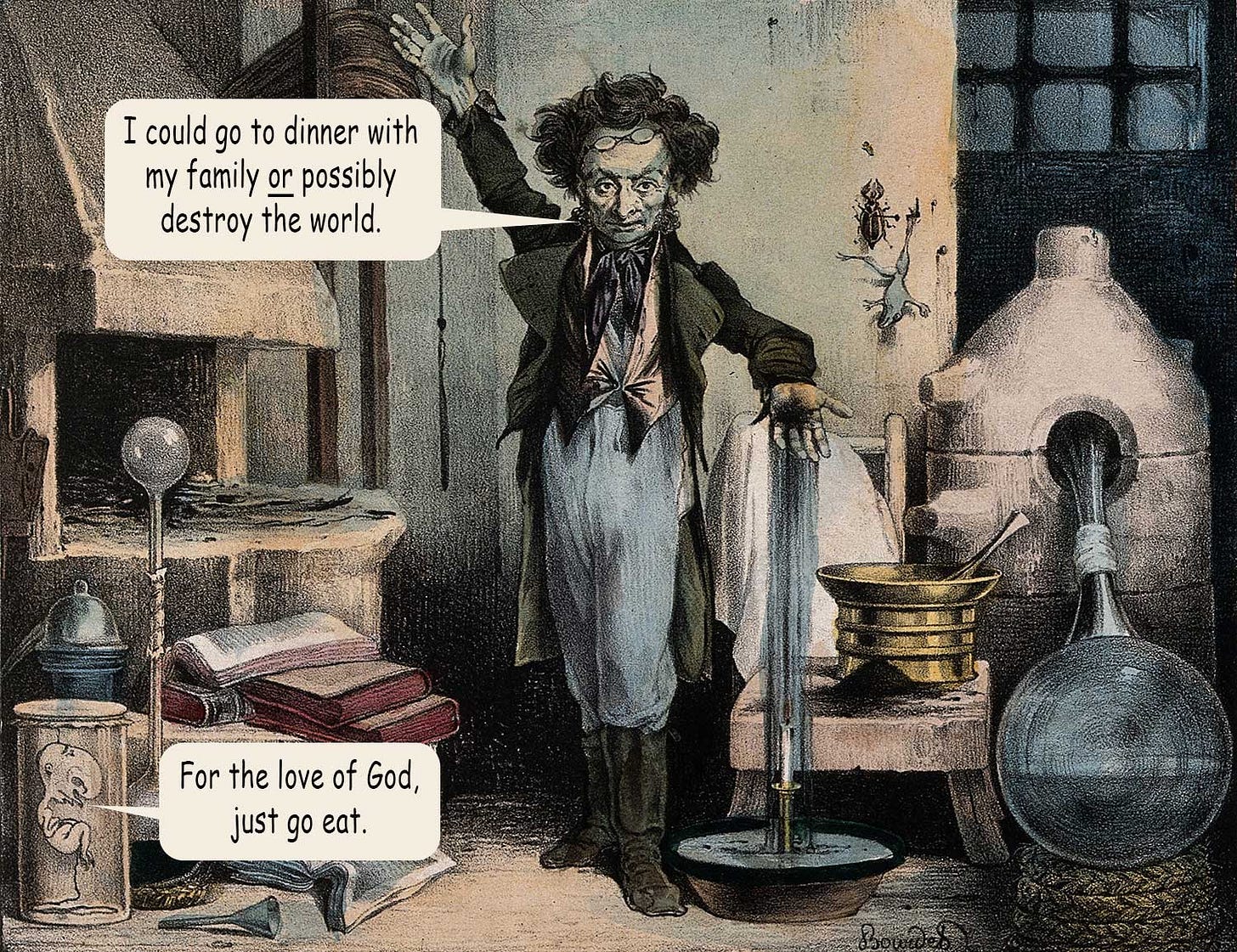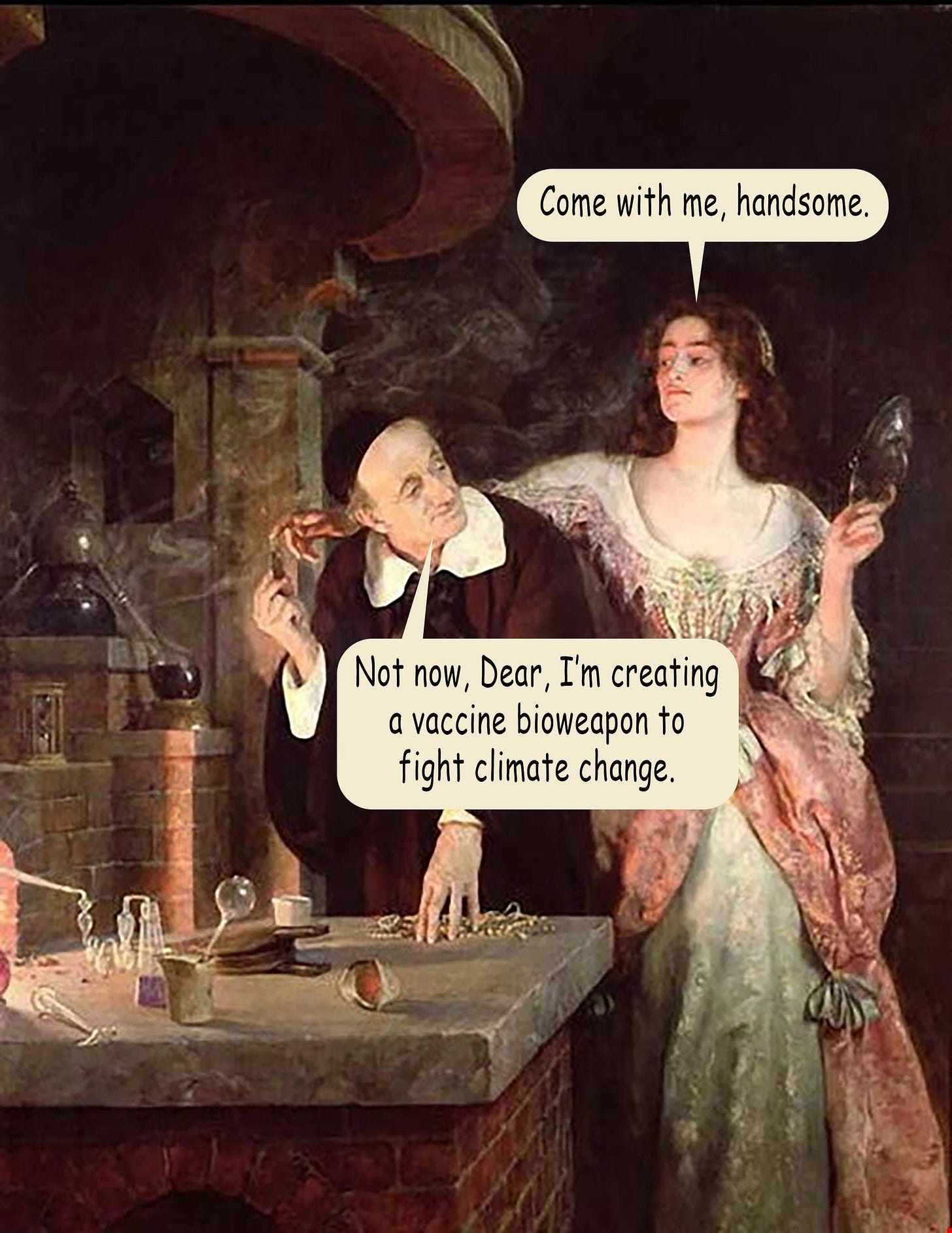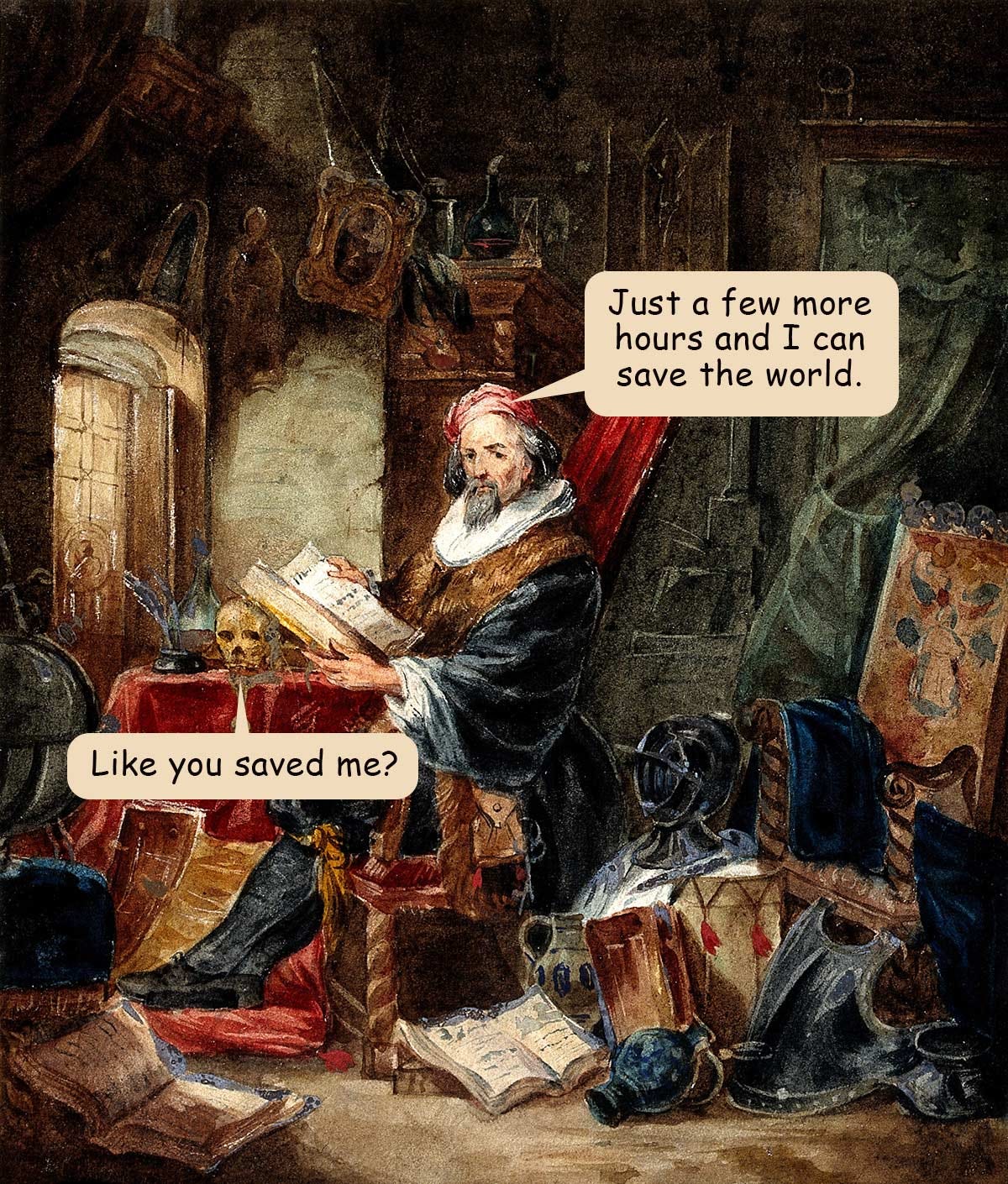Monsters Among Us
WARNING: If you have not read Frankenstein there will be spoilers below.
In Frankenstein: or, The Modern Prometheus, the novel written by Mary Shelley over 200 years ago, Dr. Victor Frankenstein creates a creature from various body parts he collected from charnel-houses. In the process of doing so he is a man obsessed, forsaking his family and friends to accomplish the task of "infusing life into an inanimate body." In his long narrative to Captain Robert Walton, Frankenstein says,
I seemed to have lost all soul or sensation but for this one pursuit.
Once Frankenstein animates his creation he immediately realizes he has made a monumental mistake. He is so horrified by it coming to life and its grotesque appearance that he abandons his laboratory immediately and leaves the creature, ignorant of all around him, to fend for itself.
Frankenstein doesn't realize what he has unleashed upon his friends, family and himself. After the creature educates himself and learns who created him, he goes to find Frankenstein, his creator, after being rejected by the only people he thought would give him a chance at happiness and acceptance. He murders Frankenstein's younger brother and is responsible for the execution of a family friend. Later, he murders Frankenstein's best friend and finally his wife on their wedding night.
Dr. Frankenstein calls his creation many things: creature, wretch, fiend, devil, wretched devil, vile insect, demon, murderer of my peace and villain to name more than a few. More than 20 times Frankenstein calls his creation a "monster." The creature, unlike depictions of him from Hollywood and television, is formidable, far beyond humans in strength, stature and intellect. And he is ugly, impossible for anyone to behold without being repulsed and mortified.
But who is the real monster? Frankenstein spends no time considering the consequences of his plans or actions. It is the pursuit to animate life that drives him while he never once considers that reanimating parts from dead humans could have terrible consequences. Frankenstein pursues the monster across the Arctic and eventually lies broken and exhausted on Walton's ship where he fully realizes the havoc he brought upon his friends, family, himself and possibly humanity as a whole.
While near death stuck in the Arctic ice Frankenstein says to Walton, a man of similar passions:
Learn from me, if not by my precepts, at least by my example, how dangerous is the acquirement of knowledge, and how much happier that man is who believes his native town to be the world, than he who aspires to become greater than his nature will allow.
Later, on the ship, Frankenstein's creation laments over the dead body of his creator and the last we see of the creature is his escape across the Arctic on his "ice-raft." The novel ends with this:
He was soon borne away by the waves, and lost in darkness and distance.
We learn earlier from the creature that he plans to kill himself after he accomplishes the death of Frankenstein, but the novel is ambiguous on this point. Does he kill himself? Or does he live on to torment others, to father a new race of devilish men?
The parallels to our current time are striking. Frankenstein was written by Shelley when she was only 18 and finally published when she was 20 in 1818.
If we give the powers that be the benefit of the doubt regarding the Covid jabs, that is, that they did not intend to harm us (though, clearly they did) why would they try to inoculate the entire world with a brand new vaccine that had no long term data? Initially, before I knew anything that I know now, that was the only reason I did not take the jab. Why didn't they consider this might have dreadful consequences and that maybe, just maybe, the risk was not worth it?
What about A.I.? What about geoengineering? What about medical experiments? What about more and more sophisticated military weaponry? Are the risks worth it? Are there enough men and women in these fields who will exercise caution over glory? It does not appear so.
Much of the problem with these people is they don't know the art of living a mundane life, of being content with simple pleasures. Most of life is lived between highs and lows and people who do not how to navigate that keep looking for the next big thrill, often to the detriment of those around them.
We are living in an unstable, dangerous time. The technological advances we've made in the last 50 years have the possibility, maybe the inevitability, of horrific, unintended or intended consequences.
It is Captain Walton attempting to find a Northwest Passage who relates Frankenstein's story in letters to his sister. He is a man like Frankenstein, something the Doctor picks up on right away which is why he tells Walton to "Learn from me..." How many men and women are there like Frankenstein and Walton? How many are there who would destroy the world for the intoxicating pursuit of knowledge or scientific discovery without ever considering the consequences of those pursuits? Early in the novel Walton writes:
And now, dear Margaret, do I not deserve to accomplish some great purpose?
No Captain, you don't. None of us do at the expense of our fellow human beings.
Be vigilant, friends, there are monsters among us.
Buy the book: I'm Nobody. Who Are You? Can We Save the World?
Some comments on the book:
“It’s a cool gift for a fellow-dissident friend that can relate to the material. It’s like reading a war journal by someone you never met that was in the same conflict as you; you mostly read it for the good feelings you have as you nod along in agreement and reinforce the neural pathways that got fired up as you lived through your particular shared-but-unshared moment of history’s hell.” —Guttermouth from The Gutter
“I received your book today, and I can now honestly say, I couldn’t put it down. I read it from cover to cover, flipping pages with anticipation and delight. I read words and sentences that sounded as though they were flowing from my own mind (even to the point of reading the sentences that “filled that empty space” at the very end).
I will review. I will share. I will continue the fight of the nobodies of the world.” — John here on Substack
"This was a fun and very funny book, written in an interesting and innovative style. We’re all basically inmates in this open-air asylum known as Western Civilization in 2023. Here’s an enjoyable letter from a fellow inmate to lift your spirits, let you know you’re not alone, and inspire you with the possibility that maybe there are enough kindred spirits that we can change this world for the better. For anyone who feels like our postmodern culture has gone completely crazy, this book will be a thoroughly enjoyable read." — Mr. Thursday, Amazon Review
"A great way to spend an hour or so. The words of so many who love freedom, but who have never written them for others to embrace, are now available in short order and short form.
If you love freedom, reality and truth, all sprinkled with levity, more honesty and bit of snarky meme, this book will delight.
We can, we must, and we will save the world." — John, Amazon Review
This article also appears on my website, The Asylum. The website also has several things that are not possible to do on Substack: The World Economic Forum Members Reference (thanks to Dr. Malone), Red State/Blue State reference showing Senate and House percentages by party affiliation, quotes, a large resources section, a robust search feature and some other things unique to the site: quizzes, word games and leaked communications. These latter three are satirical and funny, at least in my mind, but you'll have to be the ultimate judge on that.






“Much of the problem with these people is they don't know the art of living a mundane life, of being content with simple pleasures. Most of life is lived between highs and lows and people who do not how to navigate that keep looking for the next big thrill, often to the detriment of those around them.”
A very poignant and sage observation. One I’d like to remember and quote.
Unfortunately the Frankenstein story is a bit thrilling.